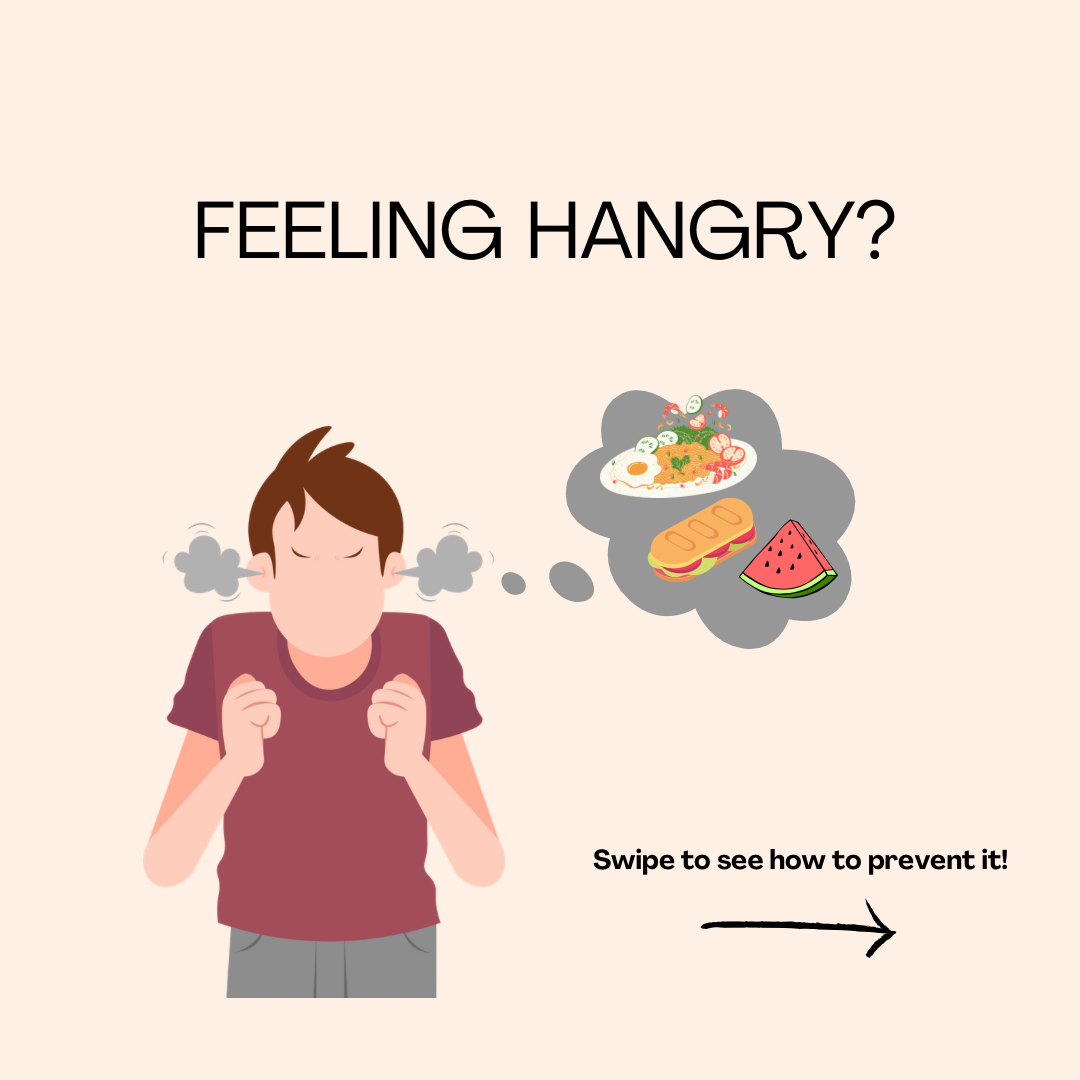Feeling Hangry?
Often clients feel confused about nutrition information and overwhelmed by choices. For some, finding time to eat or to prepare meals is difficult. Others eat randomly or snack mindlessly throughout the day. Many are restrictive dieting and limit their intake to unfulfilling foods. And for some, their eating is affected by their emotions. All of these eating behaviors can leave us feeling unsatisfied and HANGRY (hungry and angry at the same time). Here are some tips to prevent you from becoming hangry:
1. Prioritize eating. Set an alarm or schedule your day around your meals. Eating provides you the fuel to get you through your day. You are not going to drive to Vegas on one tank of gas or a single charged battery; you will have to refuel the car or recharge the battery mid-way or you can burn your engine.
2. Have a regular eating schedule. Follow a regular meal schedule including three meals and two or three snacks every three to four hours. Eating on time helps you self-regulate your appetite, blood sugar, and portions and prevents you from getting hungry, angry, tired, or anxious.
3. Plan, shop, prepare, and cook ahead. When you have a plan, you can shop and easily and quickly prepare meals for you and the whole family. Preparing a quick meal can help prevent you and the whole family from getting too hungry and giving into fast, convenient, and less nutrient dense foods. Although it may take some time and energy at the beginning, it can surely save time, energy, and money in the long run.
4. Stop restrictive dieting. Cutting out foods and restricting your diet can make you feel deprived, sad, and angry. Restrictive dieting can also lead to binge eating or malnutrition, both of which we associate guilt or shame. Food is medicine… the best way to stop getting hangry or binge eating is to stop restrictive dieting.
5. Eat foods that are satisfying and nutrient dense. Eat well-balanced meals and snacks throughout the day, including complex carbohydrates, protein, healthy fats, fruits, and vegetables. Eating well-balanced meals on a regular meal schedule can help keep your blood sugar in good control and can help keep you feeling satisfied.
6. Include scheduled and mindful snacks. Snacks can help bridge the gaps between meals, keep your blood sugar within normal range, and can help prevent you from becoming hangry.
7. Discern between hunger and emotional eating. Listen to your hunger and fullness cues. If you are physically hungry, eat and enjoy. If it is emotional hunger, stop and ask yourself what you need at the moment.
8. See your RDN. Your RDN can help you create a regular meal schedule to fit your lifestyle. Your RDN can help you plan meals, can support you while you stop restrictive dieting or binge eating, and can help you identify your hunger and fullness cues. See your RDN to help make eating easy, fun, and fulfilling!
